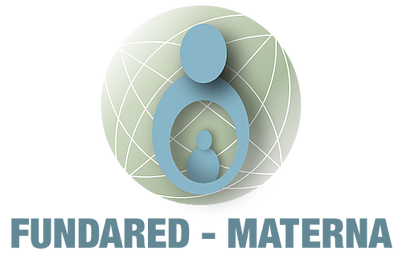Lista de comprobación segura de la OMS Parto
De los más de 130 millones de nacimientos que se producen cada año, se estima que 303000 resultan en la muerte de la madre, 2,6 millones en la muerte del feto, y otro 2,7 millones en una muerte del recién nacido en los primeros 28 días de su nacimiento. La mayoría de estas muertes se producen en entornos de bajos recursos y la mayor parte se podría haber evitado. En respuesta a esta inaceptable situación, se ha lanzado la Lista de comprobación segura para el parto, ha sido desarrollado para apoyar la entrega de las prácticas esenciales de atención materna y perinatal. La lista de verificación aborda las principales causas de muerte materna (hemorragia, infección, parto obstruido y trastornos hipertensivos), nacidos muertos relacionados con el parto-(inadecuada atención durante el parto), y las muertes neonatales (asfixia al nacer, infecciones y complicaciones relacionadas con la prematuridad). Fue desarrollado siguiendo una metodología rigurosa y probada para su uso en diez países de África y Asia.

Enlaces a la Organización Mundial de la Salud:
Recomendaciones de la OMS para los cuidados durante el parto, para una experiencia de parto positiva. Transformar la atención a mujeres y neonatos para mejorar su salud y bienestar.
**** Jorge E. Tolosa MD, MSCE miembro del panel
From: OLADAPO, Olufemi Taiwo [oladapoo@who.int]
Sent: Tuesday, February 27, 2018 10:17 AM
Subject: New WHO guidance on intrapartum care for a positive childbirth experience
Dear Colleagues,
On 15 February, WHO issued a press release [who.int] to launch new guidance on intrapartum care. This forms part of WHO’s efforts to improve the quality of care around the time of childbirth in the SDG era. The guideline contains 56 recommendations related to supportive care throughout labour and childbirth; care during the first, second and third stages of labour; and immediate care of the woman and newborn after birth.
Kindly share this message with your networks for wide dissemination.
- Full guideline document: “WHO recommendations: intrapartum care for a positive childbirth experience” and the supporting evidence document – available here [who.int].
- WHO Department of Reproductive Health and Research (RHR) Web Story – available here [who.int].
- Special Commentary by the Assistant Director-General [Family, Women’s, and Children’s Health (FWC) Cluster] – available here [who.int].
3
User-friendly slide deck summarising the rationale, methods, and highlights of the recommendations (best viewed in slide show mode; Quicktime ® player required for Slide #8) – available for download here [dropbox.com].
- Infographics highlighting the overarching messages of the guidelines – available here [who.int]. We encourage you to disseminate the guideline and the related publications through your networks. You can learn more and contribute to further discussion by following @HRPresearch on twitter. WHO welcomes comments and suggestions on the published documents and these should be directed to mpa-info@who.int or reproductivehealth@who.int.
With thanks,
Femi Oladapo, Mercedes Bonet, and Metin Gülmezoglu on behalf of the WHO team
Olufemi T. Oladapo, MBBS, MPH, FWACS (Obgyn), FICS Maternal and Perinatal health and Preventing Unsafe Abortion
HRP – UNDP · UNFPA · UNICEF · WHO · World Bank Special Programme of Research, Development and Research Training in Human Reproduction Department of Reproductive Health and Research World Health Organization, Avenue Appia 20, Geneva 27
CH-1211 Switzerland
Tel: +41-22-7914226
E-mail: oladapoo@who.int
Please visit our online RH Update Newsletter
http://www.who.int/reproductivehealth/RHUpdate/en/index.html [who.int]
4
Lista OMS de verificación de la seguridad del parto
www.who.int/patientsafety/topics/safe-childbirth/childbirth-checklist/en/
Nominación de preguntas para desarrolo de recoemndaciones en slaud maternal y perinatal:
“…
Dear colleagues,
As many of you are aware, in 2017 WHO implemented a new, “living” approach to prioritizing, developing and updating maternal and perinatal health recommendations. In this new approach, WHO and the Cochrane Pregnancy and Childbirth editorial team assess potential changes in the underlying evidence base for those reviews that underpin individual recommendations.
On 10-11 April 2019, we will convene with the Executive Guideline Steering Group on Maternal and Perinatal Health Recommendations. The Group will review the findings of these assessments of the evidence base, and agree on the questions to prioritize for updating in 2019-2020. The Group will also consider questions that are new or emerging priorities where WHO would develop a new recommendation.
As members of the network supporting WHO in maternal and perinatal health guideline development, we would like to invite you to nominate any new questions where you consider a new WHO recommendation may be warranted.
Questions can be nominated at this link: https://www.who.int/reproductivehealth/publications/priority-question-recommendations-mnh/en/ [who.int]
Please feel free to share this with any colleagues or networks.
If you are unsure whether WHO has an existing recommendation for a particular intervention, you can search on WHO Reproductive Health Library: www.who.int/rhl [who.int]
Kind regards,
Joshua Vogel & Femi Oladapo, on behalf of WHO Steering Group

0 comentarios